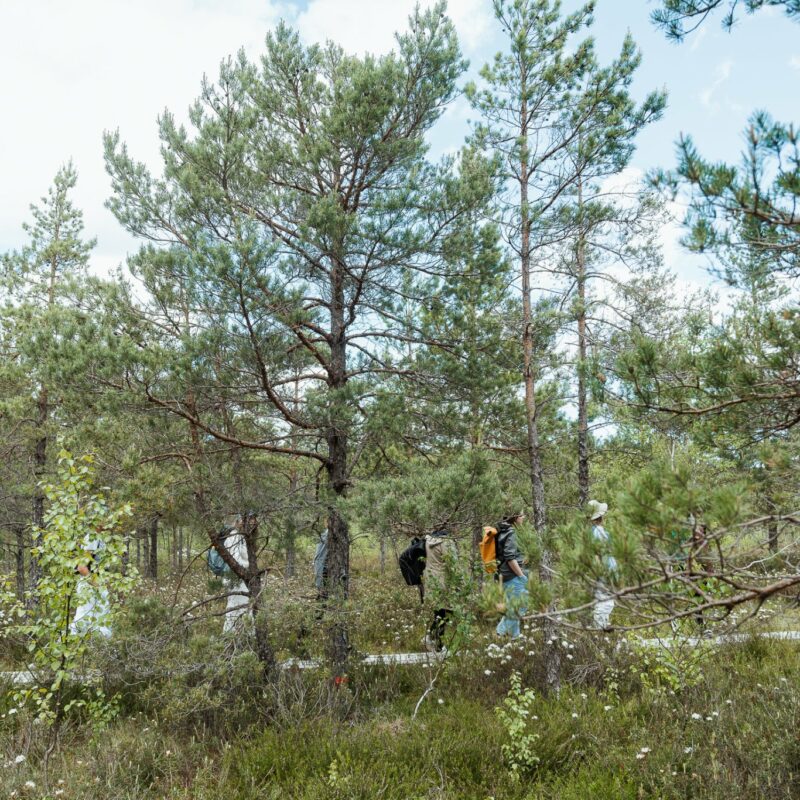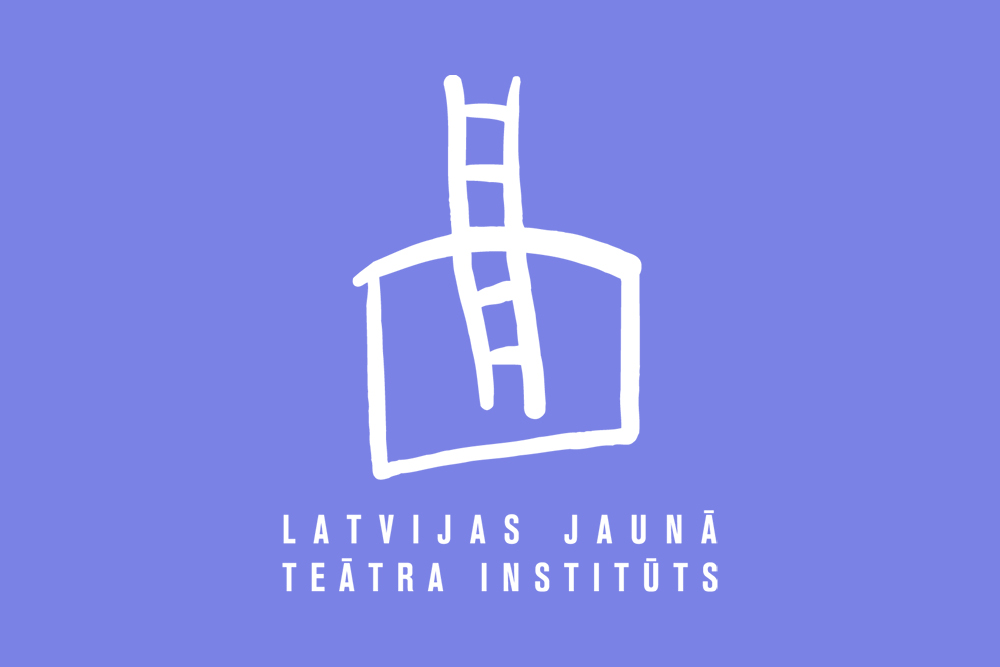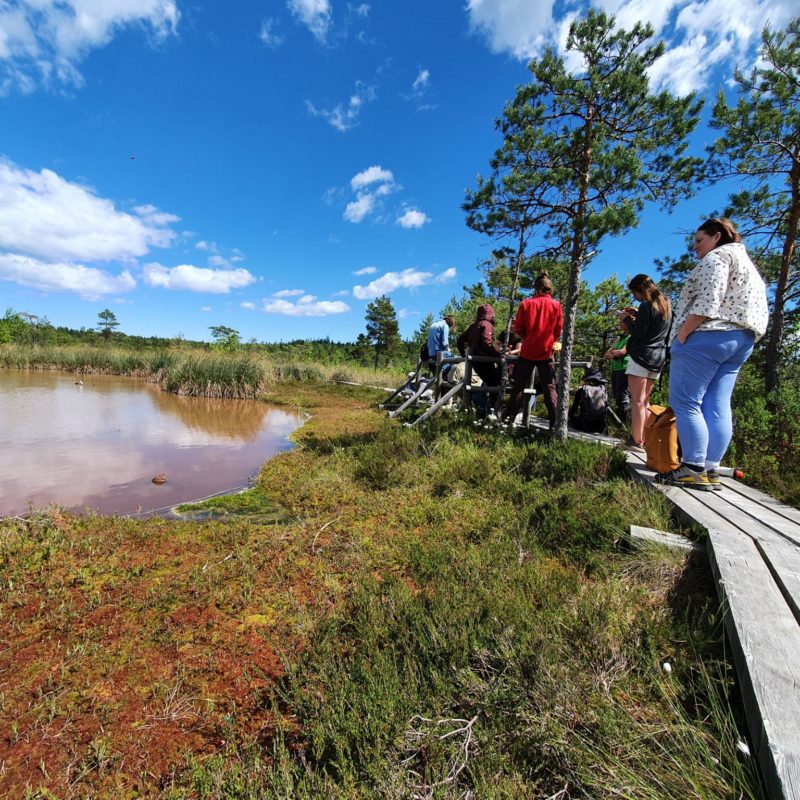

New Theatre Institute of Latvia is a project based organisation working in the field of contemporary performing arts. Since 1995, NTIL has been organizing the International Festival of Contemporary Theatre Homo Novus – the largest performing arts platform in Latvia.
| New Theatre Institute of Latvia is a project-based organisation working in the field of contemporary performing arts since 1998. NTIL aims to develop, encourage and support diversity and urgency in performing arts both locally and internationally. Responding to the changing practices and needs of artists and audiences, NTIL organises the International Festival of Contemporary Theatre Homo Novus, provides professional training, residencies and information exchange, and fosters international collaboration, with a special focus on emerging ideas, innovative work and responsible actions. Supporting a young generation of artists, NTIL explores the urban and public context and different strategies of participatory art practices. NTIL serves as a practical training platform and resource centre for artists, arts managers and NGO activists. Its main target groups are students, performing arts professionals and wide audiences on a local, regional and international level. Since NTIL has joined the European network of arts organisations activating the debate on climate justice in arts ten years ago, production of related artwork and other activities have become one of the core elements in everything we do.
|
Working with artist and mental health activist ‘the vacuum cleaner’, curator and agitator Cecilia Wee and a stellar line up of international artists, activists and academics, With For About 2020 creates a vital, slow and complex space between art, activism, care and social practice in response to COVID-19.
The organisers are looking for contributors from anywhere in the world. Thus, they are very keen to hear about things they won’t have heard about, the unchampioned, undiscovered and low-key.
The Question Project explores doubt, hypothesis, proposition, uncertainty. It is a conversation with city dwellers who think in the form of a question. What would you ask the city? What would you ask your body? Indeed, these are just a few of dozens of questions that came up in different cities around the world. The Chilean artist, activist and architect collective MIL M2 creates and conducts this mobile performance.
At the end of the year, the New Theatre Institute of Latvia and the Chilean interdisciplinary collective MIL M2 invite to have a look at the digital booklet of mobile urban performance “Question Project” that took place during this year’s international festival of contemporary theatre Homo Novus and invited Rigans to pose a question to their city, their neighbour, the future and themselves.
Together with the artistic group GolfClayderman, young people from different origins in Riga are going to challenge the super power of fashion industry by creating an alternative collection, out of materials found in their neighbourhood. At the DIY fashion show, Party Animals invite them to discover an alternative version of beauty and success.
It’s not a secret that cut off trees outnumber planted ones, in the city of Riga. Empty places overgrow with grass or concrete, shadows disappear from the streets leaving no refuge, no place for taking a breath. This work expands and develops, hopefully, many decades after the festival. It is an invitation to imagine, to observe, and to grasp such a strange process as a form of life.
From July 5 to 23, the New Theatre Institute of Latvia organized an artistic residency for the Belgian artist David Weber-Krebs, who, together with the playwright and producer Simone Bassaniand, and the French sound artist Samuel Sylvain Repault, worked on their new production “Silencing”. A coproduction of the New Theatre Institute of Latvia and Kaaitheater (Brussels). The first rehearsals took place in Riga, attracting Inta Balodis, Jānis Balodis and Kati Krolli as actors. Sound space and technical assistance were provided by Voldemārs Johansons.
David Weber-Krebs research work focuses on the theater experience in the times of Pandemic. Adapting to the conditions of Covid-19 pandemic David already changed his initial plans in April 2020, and as opposed to making a new performance, he sent out e-mails to European stage art professionals asking them to imagine their first theater visit after the isolation. All of the responses were gathered in a book called “And Then the Doors Opened Again”, which was published in September, 2020. This year, 2021, after traveling to various countries, David interviewed theater professionals and theater audience about their experience. He spent four days in Rezekne, Latvia, interviewing Rezekne city theater “Joriks” crew and the inhabitants of Rezekne, as well as saw the performance “My Neighbor Jew” and interviewed the creative team.
From August 8 to 15, the New Theatre Institute of Latvia provided an artistic residency for theatre maker Begüm Erciyas (Turkey/Belgium) to prepare the new production “Forest Silent Gathering”. The premiere will take place in April 2022 in Antwerp, as part of the international arts center’s deSingel program. During the research, Begüm interviewed forest storytellers (ornithologist Viesturs Ķerus, folklore researcher Sanita Reinsone) and recorded the sounds of various forest habitats. Sound post-processing is currently taking place, in which NTIL helps with translations and coordination of materials and archives (for example, Dainis Īvāns’ speech during the Baltic Way).
Director and actress, Iveta Pole travelled to Ljubljana to participate in the ACT – art, Climate, Transition Ljubljana Summer Lab, hosted by Bunker, from August 23 to 27. The central theme as trees in urban environments. Lectures, interaction master classes with Slovenian stage artists, as well as conversations with various researchers took place. The summer school had a strong impact on the Latvian director: “The lectures and events were designed so that we could look at the tree in different ways. To be honest, I had such a realization – I have had an irreversible change in how I look at a tree in the city,” says Iveta Pole.
The Journey is a week-long hiking workshop through the Latvian countryside. While walking, we are introduced to multispecies perspectives and politics by live streamed lectures, podcasts and other materials by international scholars and practitioners who become our travel guides and remote co-travelers. Shifts between listening and learning, walking and experiencing prompt us to re- learn our relations to the more than human world and ourselves.
This mixed media performance addresses the challenge of manifesting the complex reality through the extended metaphor of bees and is structured through three main agential types: a Queen, a drone and a worker. The indivisibility of reality suggests to us ever-widening circuits of existence, located in the agential manifestation of life.
The Feast is a youth-led event – a journey into the world of bacteria, yeast and fermentation. Together with the Berlin artists’ association Edible Alchemy and chef Dita Lase, we will ferment, salt, bake and feast on snacks made from food that others throw away. At the same time, we will discuss with the audience how and where we buy our food, how we use it and how much we throw away.
An attractor is a state to which any dynamic system tends to evolve. Chaotic or strange attractors are a set of values that never reach equilibrium. In a performance that emerges from a meeting of art and science Latvian artist Voldemārs Johansons offers a rare view in the world of mathematical chaos, where generative computing is depicted with sound and choreographed movement.
In her performance series Diorama, contemporary Norwegian artist Ingri Fiksdal uses choreography as a special effect or lens to change the way we perceive the world. Her performances reflect on the passing of time, on the slow change in landscape, and scenography as an ecological practice of bodies both human and non-human.
Nurture is a one-to-one performance which makes space for tenderness and vulnerability. Through the act of breastfeeding, it investigates the politics of care, gender and coexistence. The performance invites you to examine the interdependent nature of life: the countless networks of human communities as well as the biological processes that sustain our bodies and enable life on earth.
An attractor is a state to which any dynamic system tends to evolve. Chaotic or strange attractors are a set of values that never reach equilibrium. In a performance that emerges from a meeting of art and science Latvian artist Voldemārs Johansons offers a rare view in the world of mathematical chaos, where generative computing is depicted with sound and choreographed movement.
Networking as part of the ACT project is an important segment, in which partners are sharing and discussing the activities’ state of the art. This meeting was organised and hosted by Culturgest, Lisbon with participation of other project partners and representatives from: Arts Admin/London, Bunker/Ljubljana, Kaaitheater/Brussels, COAL/Paris, Domino/Zagreb, Kampnagel/Hamburg, NTIL/Riga, Theater Rotterdam/Rotterdam, and Lokomotiva /Skopje.
The theme of the Riga Summer Lab, promoted by NTIL, is peatlands – a source of life for rare plants and animals, and a major carbon absorber. Peatlands in Latvia occupy more than 10% of the land and although draining and burning of peatlands for agriculture and other purposes is a massive source of greenhouse gas emissions globally, peatlands are still being used for extraction purposes in Latvia, peat being a major export product. The carbon storage potential of peatlands is still widely underappreciated. Thus, we invite artists to Magical Peatlands Summer Lab to wander through various peatlands, spot endangered bird species, listen to nature and various biologist stories.
On April 8, 2020, in the middle of the first Covid-19 wave in Europe, artist David Weber-Krebs invited his colleagues around the world to participate in a collective act of imagination. He asked them via email to imagine the future of theatre from that specific moment when theatres were closed and it was not clear how, when, and even if they would open again. The answers were compiled in the book and then the doors opened again, which was published in September 2020 by Onomatopee.
Since then, the book has been used as a tool to generate further speculations and reflections about spectatorship in pandemic times and beyond. David Weber-Krebs and dramaturg Simone Basani have worked in different cities (Brussels, Skopje, Rotterdam), through walks around a theatre, conversations, online and offline workshops. In Summer 2021 they had a series of conversations with spectators of different ages, cultures and professions, in Rēzekne and Riga. All these encounters have been documented, their traces collected in the archive of and then the doors opened again. For Homo Novus 2022, David and Simone want to unfold the archive with a group of local artists and intellectuals as a starting point to explore the question: as spectators, what do we crave for now?
Latai Taumoepeau is an Australian artist. Her body of work spans more than a decade of presenting cathartic works about the impact and injustice of climate change on low lying islands of the Pacific Ocean. Latai means reminisce and Tau-moe-peau means Battle-With-Waves. Her names are from her ancestors from the Island Kingdom of Tonga. Through her work, Latai has been mourning the eventual loss of her ancestral islands. She centered her indigenous concepts of faiva (performance) and fonua (land/body) in her contemporary work to raise awareness and empathy for front line coastal communities.
The soul is like an aviary filled with birds. It is a place where motion, colors, air movement and purposes become the flesh of what has been, of what grows, morphs, dies out, transmutes into a ghost. Chiara Bersani approaches the death of the swan with her work entitled The Animal: what happens when looking at the deep night we can recognize ourselves through the singing? (Giulia Traversi)
In December 2021, Nahuel Cano was traveling from Amsterdam to Riga. Janis Balodis picked him up from a ferry in Klaipeda. They were driving. It was late in the evening, already dark, and a severe snow storm started right after we left Klaipeda. They decided to take a smaller road, and there we hit a deer. “The Last Night of the Deer is a story about that one December evening when they visited Lidl, refueled LPG in Viada and met an anthropologist, hit the deer, crushed a skull, got covered with blood and feces, were running from dogs, and were barely accepted in a taxi. It is a story about all-too-human forests and the more-than-human spirits that inhabit it.”
What kind of attention do we give to the sounds of the environment we inhabit? What sort of agency do we have when these sounds start to disappear? The Silencing is a sensitive exploration of the role of the spectator in a theatre space. It mirrors what is happening outside of it – the profound impact that human activity has on its physical surroundings. On stage, a group of young storytellers establishes a shared practice of listening by interweaving autobiographical narrations, speculations, and audio recordings. They fill the theatre space with words and sounds until words fail them and there are no more stories to tell.
New Theatre Institute of Latvia produces this series of residencies. Indeed, NTIL invited three artists from the Baltic region to explore themes related to climate, social and economic justice and change. Their new artworks will be visible at Homo Novus festival in 2021 and 2022.
The Sixth and the Last Forest School session will take place online on March 28 at 3:00 PM (EET) / 2:00 PM (CET) and will be hosted by Latvian artists Rasa and Raitis Šmiti and habitat expert Anete Pošiva-Bunkovska.
In the last Forest School session Latvian artists Rasa and Raitis Šmiti will share their work and findings while making the exhibition Atmospheric Forest, an immersive installation that visualizes the complex relations between a forest, climate change and the atmosphere. This work is the outcome of their three-year artistic research project on Pfynwald, an ancient Alpine coniferous forest. Artists will be joined by the habitat expert Anete Pošiva-Bunkovska from .. surprise, surprise .. a forest located in Latvia.
Passing through stories of family heritage, legacy and ecology, The Last Night of the Deer is an autobiographical-fictional road trip performance that concerns itself with the state of affairs that we leave behind for our children. In the artists’ own words: “This is a story of too many human forests and too many human ghosts that inhabit them”.



